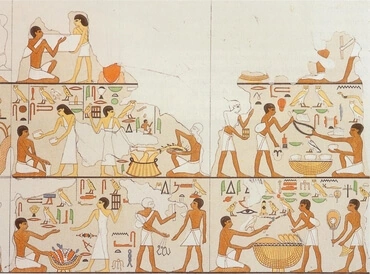Arcana Coelestia # 3667
3667. 'God Shaddai will bless you' means the temptations to which that truth and good was subjected and by means of which the joining together was effected. This is clear from the meaning of 'God Shaddai' as temptations, dealt with below, and from the meaning of 'being blessed' as a joining together, dealt with in 3504, 3514, 3530, 3565, 3584. Since Jacob' now represents the good of truth, as shown above in 3659, that good and truth is here meant by 'you'. The reason why 'God Shaddai' means temptations is that in ancient times people gave the Supreme Deity, or the Lord, various illustrious names. They used these in accordance with His attributes and in accordance with the kinds of good derived from Him, as well as in accordance with the kinds of truth, which are manifold, as everyone knows. By all those descriptive names members of the Ancient Church meant none but the one God, namely the Lord, whom they called Jehovah. But after the Church fell away from goodness and truth, and at the same time from such wisdom, they started to worship as many gods as there were descriptive names of the one God - so much so that each nation, and at length each family, acknowledged one of them as its own god. This was how so many gods came into being, who are also referred to in various places in the Word.
[2] The same happened in the family of Terah, Abraham's father, and also in Abraham's house. The fact that they worshipped other gods, see 1356, 2559, and in particular God Shaddai, 1992. And the fact that the worship of that God persisted in that house is also clear from the following places in Moses,
I appeared to Abraham, Isaac, and Jacob as God Shaddai, and by My name Jehovah I was not known to them. Exodus 6:3.
This explains why Abraham was told, I am God Shaddai; walk before Me and be blameless. Genesis 17:1.
And in the present case Isaac told Jacob, 'God Shaddai will bless you'. The truth of this is also quite evident from this chapter in which, after the Lord had said in a dream, 'I am Jehovah, the God of Abraham your father, and the God of Isaac', in verse 13, Jacob then said,
If God will be with me, and guard me on this road on which I am walking, and will give me bread to eat and clothing to wear, and I come back in peace to my father's house, then Jehovah will be my God. Verses 20-21.
From this it is evident that neither did the house of Jacob acknowledge Jehovah, but that Jacob would acknowledge Him as his God if He conferred benefits on him. It was just the same as it is in Christian Gentilism at the present day.
[3] But as regards the specific name God Shaddai, the Lord had been called by this in the Ancient Church in respect to temptations, and to the blessings and benefits following temptations, as shown in Volume Two, in 1992. This is why here in the internal sense 'God Shaddai' means temptations. Temptations are the means by which the conjunction of good and truth is effected - see what has been stated and shown already about temptations, in the paragraphs referred to in 2819.
Egypt

In the Bible, Egypt represents knowledge and the love of knowledge. In a good sense that means knowledge of truth from the Lord through the Bible, but in a natural sense it simply means earthly knowledge to be stored up and possessed. And even knowledge from the Bible is not always good: If we learn them with the goal of making them useful, then they are filled with angelic ideas. But they lack purpose when they are learned only for the sake of knowing things or for the reputation of being learned. So Egypt is a place you go to learn things, but to become heavenly you have to escape the sterile "knowing" and journey to the land of Canaan, where the knowledge is filled with the internal desire for good. It's interesting that when Egypt was ruled by Joseph, it was a haven for his father and brothers. This shows that when a person's internal mind rules in the land of learning, they can learn much that is useful. But eventually a pharaoh arose that didn't know Joseph, and the Children of Israel were enslaved. The pharaoh represents the external mind; when it is in charge the excitement and self-congratulation of knowing can reduce the internal mind to a type of slavery. The mind - like the Children of Israel - ends up making bricks, or man-made falsities from external appearances.






